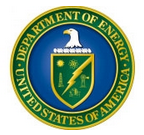
The floating platform captures the up-and-down and side-to-side motion of waves, converting it to electricity. It is anchored in water about 100 feet deep at a U.S. Navy testing facility. The small generator doesn’t even produce enough energy to serve a single household, but researchers say the data collected will be used to plan for a larger project in the future.
“Utilities and power project developers won’t even consider buying wave power technology unless they can see what an independent third party says it can really do,” said Steven Kopf, Northwest Energy Innovations CEO. “So we’re consciously running this test in all sorts of conditions, even when wave conditions are suboptimal for power production, just to get a complete picture of performance.”
More: EnergyBiz
Boehner Pushes to Lift Ban on U.S. Oil Exports

House Speaker John Boehner said he favors lifting the ban on U.S. crude oil exports, a move that he said would create about a million jobs and strengthen the domestic oil industry. “If the administration wants to lift the ban for Iran,” Boehner said last week, “certainly the United States should not be the only country left in the world with such a ban in place.”
The ban was implemented after the Arab oil embargo of the 1970s, at a time when reduced imports drove up gasoline prices and even resulted in rationing. But since then, and particularly in the last 10 years, U.S. oil production has surged, partly because of the adoption of fracking.
Boehner joined Sen. Lisa Murkowski (R-Alaska), chairwoman of the Senate Energy and Natural Resources Committee, who is also pushing for lifting the ban.
More: National Journal
DOE Expands Renewable Assistance to 5 American Indian Tribes
The Department of Energy is lending technical assistance to five American Indian tribes working on renewable energy projects.
The Blue Lake Rancheria Tribe of Blue Lake, Calif., is getting help producing a community microgrid with solar generation and battery storage. The Grand Portage Band of the Chippewa Indians in Minnesota will be getting help to determine the best way to transmit energy from a 2.5-MW wind project to tribal homes and facilities. The Oneida Tribe in Wisconsin is getting technical assistance on a 700-kW solar project. The Picuris Pueblo of Peñasco, N.M., is getting assistance developing a 1-MW solar project. And the Ute Mountain Tribe in Towaoc, Colo., will get help investigating the feasibility of community-scale solar as well as small-scale and closed-loop hydro projects.
These five tribes now join five Alaska Native villages getting federal technical assistance on a variety of energy efficiency and renewable energy projects.
More: Indian Country
Obama Likely to Reject Keystone XL in August
Alberta Energy Minister Marg McCuaig-Boyd says that the decision on the Keystone XL Pipeline is out of the provincial government’s hands and that it will not devote any more energy lobbying for the controversial project.
“It’s in their hands,” the minister said, referring to the Obama administration. Her comments came in the wake of published reports that quoted Sen. John Hoeven (R-N.D.) saying that President Obama would reject the pipeline, probably this month.
A White House press official said that a decision would come during Obama’s time in office but wouldn’t elaborate. The pipeline would be a major link in getting Alberta’s oil sands to market, but there are competing pipelines in the planning stage. McCuaig-Boyd said Alberta would concentrate on those instead.
“We’re going with the ones that are probably going to have the most success soonest,” she said. “Energy East has some promise, and so does Kinder Morgan’s Trans Mountain. Those are the two right now to put our energies into.”
More: CBC News
Kinder Morgan Hearing Draws Hundreds in Massachusetts
A Federal Energy Regulatory Commission hearing on a proposed Kinder Morgan pipeline drew hundreds of people last week, including nearly 100 who testified. Most were critical of the plan for the 412-mile pipeline, although some construction union representatives said they were in favor of it. The scoping session in Greenfield, Mass., was held to take public comment and help determine which issues FERC should address in its Environmental Impact Statement.
The Northeast Energy Direct pipeline would deliver Marcellus shale gas from Pennsylvania to markets in the Northeast. Existing pipelines serving the region are overburdened, as evidenced by the natural gas shortages during winter storms in the last two years.
A joint letter from six Massachusetts legislators asked FERC to stop the permitting work that has been conducted so far and to start over. The lawmakers and other opponents noted that Kinder Morgan only recently released thousands of pages of environmental and technical information and contended that the current permitting timeline doesn’t allow enough time to examine it all.
More: MassLive


